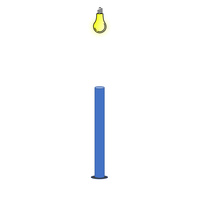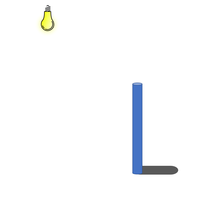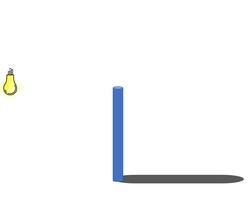Experiment
Contents
Key Stage 2
Meaning
An experiment is when you test a question you have asked by changing one variable to see how it affects another.
About Experiments
- Experiments are usually done in a laboratory but they can be done outside.
- An experiment must be designed well to answer a question. You cannot trust the answer if the experiment was badly designed. For example you cannot find out who is the fastest in class if you make some people wear their school bags in the race.
Examples
An experiment to observe what happens to the size of a shadow when the distance between the object and light is changed.
| When the light source is overhead the shadow is underneath the object. | When the light source gets lower the shadow gets longer. | The lower the light source, the longer the shadow. |
Key Stage 3
Meaning
An experiment is a type of scientific investigation in which a hypothesis is tested by changing a single variable to see how it affects another variable.
About Experiments
- In an experiment the variable which is deliberately changed is known as the Independent Variable.
- In an experiment the variable which is observed or measured is the Dependent Variable.
- An experiment which is a fair test will have all the other variables controlled to make sure nothing else has affected the results. For example you cannot find out whether a plant grows faster in direct sunlight or shade if you decide to only water one of the plants.
Key Stage 4
Meaning
An experiment is a type of scientific investigation in which a hypothesis is tested by changing an independent variable to see how it affects a dependent variable.
About Experiments
- In an experiment the variable which is deliberately changed is known as the Independent Variable.
- In an experiment the variable which is observed or measured is the Dependent Variable.
- An experiment which is a fair test will have all the other variables controlled to make sure nothing else has affected the results. For example the affect of light on the growth of a plant if only one of the plants is watered.


